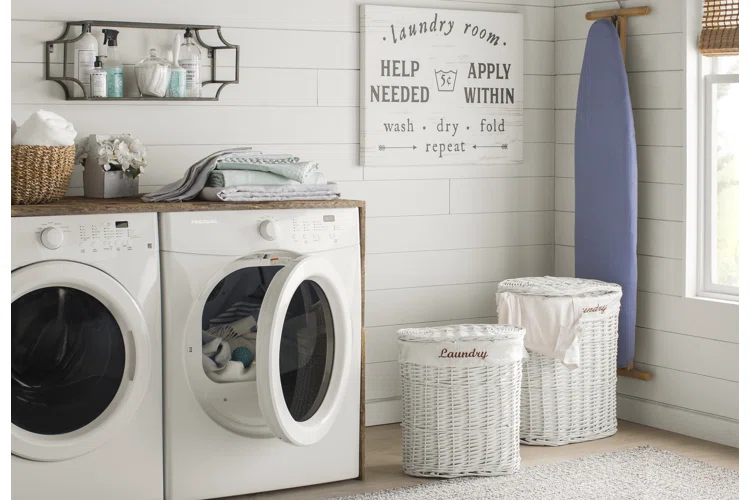Shopping for a washing machine can be an arduous task, with numerous considerations before making your final purchase decision. Front loader, top loader or washer/dryer combo options all present unique challenges when shopping for one of these essential appliances.
Be clear on what your laundry needs are in order to find the ideal machine. Consider factors like size, energy efficiency and convenience features when selecting your machine! It makes a big difference!
Size
Size matters when selecting a washing machine – having an appropriate-sized machine will reduce energy usage while simultaneously cleaning clothes more effectively.
A washing machine is a staple household appliance, yet one with significant environmental ramifications. It requires energy, water and emits microplastic pollution during its wash/dry cycles.
However, there are ways you can reduce your environmental footprint from washing machine use and make it more eco-friendly. One such way is considering how often and whether clothes really require to be washed.
One key consideration when purchasing a washer is how much space it will occupy in your home, depending on whether you choose top or front-loading models.
Energy efficiency
To save energy and money, it’s essential that you select an appliance which combines efficiency and convenience. This will mean less time spent loading up and unloading your washer as well as lower utility bills.
Modern washing machines are much more energy efficient than their predecessors, using less water and energy per hour to do their work.
An alarming study recently demonstrated how washing machines in the US emit up to 179 million tons of carbon dioxide every year – enough energy for 21 million homes!
While action on a national and state level are necessary, making small improvements and changing our habits at home can also save energy in the long run. These small efforts add up quickly to big energy savings!
Noise
Finding the ideal washing machine for your household depends on a range of factors. Take into account your laundry habits, how much time is dedicated to laundry each week and where the machine should be located.
Noise refers to any sound that interferes with enjoyment or quality of life for an individual, including hearing disabilities and living near loud sources. Noise pollution may even lead to health problems.
Acoustic energy of sounds ranges widely, from the buzz of mosquitoes to jackhammers hammering away. Our ears are highly sensitive, which enables us to interpret sounds as either pleasant or unpleasant depending on our mood and attitude toward its source.
Environmental noise can have devastating repercussions for both humans and wildlife alike, disrupting breeding cycles and the rearing of young. Fish larvae have even been known to relocate towards more tranquil locations due to exposure.
Convenience
Convenience is a key factor when it comes to shopping and eating habits, offering many positive attributes as well as potential drawbacks – for instance, convenience foods often contain high amounts of sugar and fat which may contribute to weight gain, diabetes or other health concerns.
However, convenience stores can have an adverse impact on the environment. By using significant amounts of electricity to power themselves, convenience stores contribute significantly to greenhouse gas emissions.
One way to conserve energy by washing clothes at different times of the day, and avoid doing it during afternoon hours when many energy companies charge extra for electricity; doing this can significantly lower energy bills and bills.
By using less detergent and water, another great way to save energy and money is to cut back on consumption. Not only will you save money over time but your clothes will stay cleaner for longer, too! Furthermore, many machines offer fabric-specific wash cycles designed specifically to be gentle with garments.




